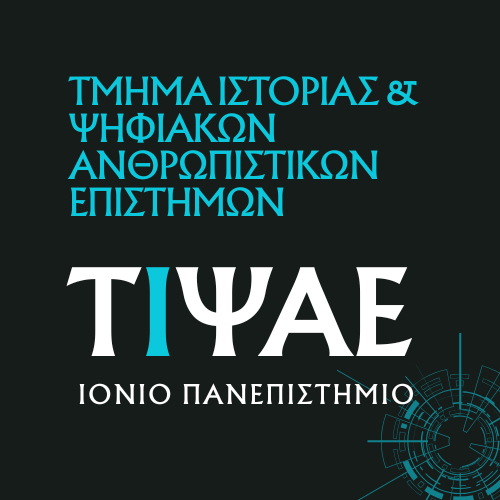HELLENISTIC ATHENS
Teaching Staff: Kralli Ioanna
Course Code: ΙΑΕ607
Course Type: Seminar
Course Level: Undergraduate
Course Language: Greek
Semester: 5th΄
ECTS: 5
E Class Page: https://opencourses.ionio.gr/courses/DHI276/
Curricula: Curriculum in History up to 2024-25, Curriculum in History and Digital Humanities from 2025
The seminar examines the political history of Athens from the battle of Chaironeia in 338 BC (the defeat by Philip II of Macedon) and down to 86 BC. (the sack by Sulla). The main subjects of the course are: the ways in which the Athenian leaders and the demos adapted to the new political reality of powerful monarchs, Athenian relations with various kings (of Macedon, Ptolemaic Egypt and Pergamom) and the resulting changes in diplomacy (in comparison with the practices of Classical era); also relations with the Romans, political as well as cultural. The operation of Athenian democracy and the de facto, progressive concentration of power into the hands of a few members of the elite are subjects inextricably bound with foreign policy.
After successfully completing the seminar the students are expected to be able to analyze and criticize the information provided by the sources, develop questions, assess the main features of Athenian foreign policy, without being influenced by the city’s great past (in contrast with the majority of ancient literary sources); finally, students should be in a position to identify the multiplicity of roles undertaken by the Athenian leaders.
Week #1 : brief review of Athenian political history and constitution in the 4th century – the main sources
Week #2+3: The consequences of the battle of Chaironeia – The Athenian involvement in the wars of the Diadochoi and the oligarchic regimes imposed by Antipatros and Kassandros– evaluation of the role of the Athenian leaders.
Week #4+5: Athenian relations with Demetrios the Besieger (307-301 BC.): from the restoration of the democracy and the godlike honours to his dismissal from the city.
Week #6: Diplomatic relations with Lysimachos, king of Thrace – The tyranny of Lachares – The return of the Besieger and his interventions in the constitution.
Week #7: The liberation of the asty in 287 BC and the relations with Ptolemaic Egypt.
Weeks #8 + 9: The awards of the ‘Highest honours’ to Athenian citizens.
Weeks #10: The brief period of independence and the subjection to Macedon (268-229 BC) – Neutrality and relations with Macedon, the Ptolemies and the Attalids of Pergamon (229-200 BC).
Week 11+12: Athenian relations with Rome (200-86 π.Χ.): from good will and privileges to disaster.
Week #13: Instructions on essay writing.
Ferguson, W. S., Hellenistic Athens, London 1911.
Habicht, C., Athens from Alexander to Antony, trans. D. Lucas Schneider, Harvard 1997.
Oliver, G. J., War, Food, and Politics in Early Hellenistic Athens, Οxford 2007.
Shipley, G., The Greek World after Alexander, 323-30 π.Χ, London/New York 2000.
Walbank, F. W., The Hellenistic World, London 19812.
Will, É., Histoire politique du monde hellénistique, Nancy 1979/1982.
3 hour weekly seminar based on the study of ancient literary sources and inscriptions. The syllabus includes passages from Diodorus, Polybius, Livy, Pausanias, Poseidonios and, mainly, the following Plutarchean Lives: Phocion, Demetrios, Sulla. Εvery two weeks the students have to answer questionnaires related to the sources and the subjects examined each time (4-5 questionnaires, consisting of 7-10 questions each). The aim is for the students to acquire a basic knowledge of the sources and thus proceed to analysis in class.
Assessment of the students is based on their answers to the afore-mentioned questionnaires (30%), on a long essay (c.2000 words; 35%) and on a written examination (35%). In the case of failure in either the long essay or in the written examination, students are reassessed in the failed elements of assessment in September.
Back



